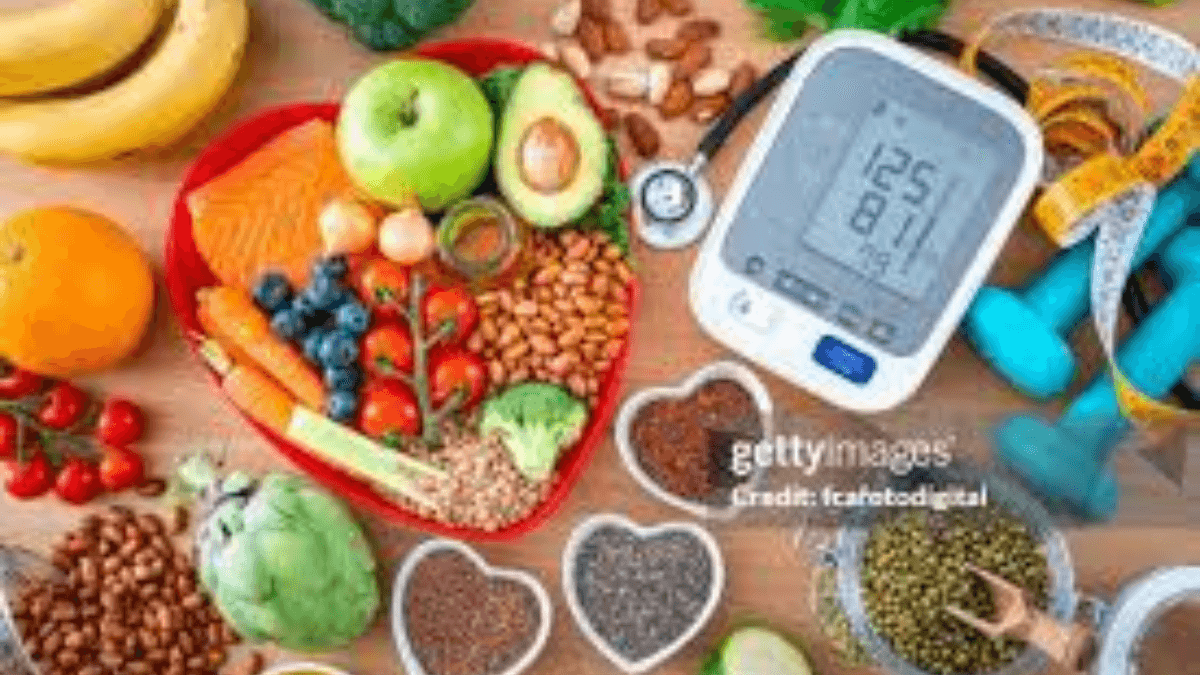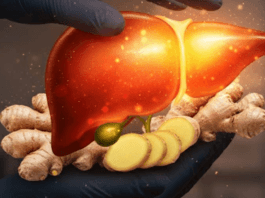The Science Behind Gut Health
Good health- Optimal gut health is crucial during the sweltering summer months. This is especially true in regions like Kolkata. High temperatures and humidity can disrupt digestive balance. Incorporating both prebiotics and probiotics into your diet can be a game-changer, ensuring your digestive system remains robust and resilient.
When it comes to gut health, there’s often confusion about two key players: prebiotics and probiotics. They’re like the Batman and Robin of your digestive system. Each has unique roles. When they work together, your gut becomes Gotham’s safest place. Health trends come and go quickly. Your internet connection is more stable during a storm. Still, understanding these two can make a real difference. Let’s unravel the science (and myths) with a good dose of perplexity, burstiness, and a human touch for Good health.
What Are Probiotics?
The Good Bacteria Revolution for good health

Probiotics are living microorganisms—yes, actual bacteria—that are beneficial to your health, especially your digestive system.
Where Do They Come From?
These good bugs occur naturally in your body, but they’re also found in food and supplements. Popular sources? Think yogurt, kefir, kombucha, sauerkraut, and miso. If it ferments and fizzes, it is just a probiotic jackpot for Good health.
How Do They Work?
Imagine your gut as a bustling metropolis. Probiotics act like the friendly neighborhood cops. They patrol the streets and crowd-control harmful bacteria. They guarantee your digestion doesn’t spiral into chaos. They:
- Restore balance to your gut microbiome.
- Help break down food efficiently.
- Reduce the risk of bloating, gas, and diarrhea.
- Boost your immune system.
Probiotic Benefits in the Summer
Summer can be a mixed bag. While it brings mangoes, sunshine, and beach days, it also delivers food poisoning risks, heat-triggered digestion issues, and bacterial imbalances. Probiotics are especially helpful now because of Good health:
- They prevent gut inflammation caused by sudden dietary changes.
- They reduce travel-related gut infections.
- They support the immune system during heat-induced stress.
What Are Prebiotics?
Fuel for the Good Guys
Prebiotics aren’t alive, but they’re just as essential. These are non-digestible fibers that serve as food for probiotics. Without them, your good bacteria just go hungry—and that’s no good for Good health.
Where Do They Come From?
You’ll find prebiotics mostly in fibrous plant-based foods. Some common examples:
- Garlic
- Onions
- Bananas
- Leeks
- Asparagus
- Whole grains (like oats and barley)
Think of prebiotics as the fertilizer for the garden of your gut for Good health.
What Do They Do?
Prebiotics help probiotics flourish. Without nourishment, even the best probiotic strain is like a knight without armor. Prebiotics:
- Encourage the growth of beneficial bacteria.
- Improve calcium absorption.
- Lower the risk of gastrointestinal infections.
- Support long-term gut health.
Prebiotic Advantages in the Summer
In summer, your gut can go through more turbulence than a budget flight. Dehydration, change in food patterns, and increased bacterial exposure can all throw your gut off balance. Prebiotics help by:
- Enhancing the resilience of your gut flora.
- Supporting hydration and nutrient absorption.
- Creating a gut environment where good bacteria thrive even under stress.
Prebiotics vs. Probiotics: What’s the Difference?

Similar Goals, Different Roles
Let’s simplify this with an analogy: If your gut were a garden, probiotics are the plants and flowers. Prebiotics are the compost that helps them grow. One without the other? You’re not getting the full bloom for Good health.
The Key Differences
| Feature | Probiotics | Prebiotics |
| Definition | Live beneficial bacteria | Non-digestible fiber feeds good bacteria |
| Source | Yogurt, kimchi, kefir, kombucha | Garlic, onions, bananas, oats |
| Role | Improve gut flora and digestion | Feed good bacteria and aid absorption |
| Summer Advantage | Balance bacteria amid food changes | Help probiotics thrive in hot conditions |
Should You Choose One Over the Other?
Not really. It’s not an either-or situation. They work best together. A harmonious blend of prebiotics and probiotics supports your gut more effectively than either on its own for Good health.
The Synbiotic Effect
When consumed together, prebiotics and probiotics are known as synbiotics. This dynamic duo for Good health:
- Increases the survival of probiotics through the GI tract.
- Enhances gut flora diversity.
- Maximizes absorption of essential nutrients.
The Science Behind Gut Health

The Microbiome: Your Inner Ecosystem
Your body hosts trillions of bacteria, many of them residing in your gut. This community is known as your microbiome, and maintaining its balance is crucial for Good health.
What Disrupts the Microbiome?
- Poor diet (hello, fast food and soda!)
- Stress and lack of sleep
- Antibiotics and certain medications
- Environmental changes (like seasonal shifts)
How Prebiotics and Probiotics Help
They act as guardians, nurturing beneficial bacteria while keeping harmful ones in check. This balance impacts more than digestion—it affects mood, immunity, and even your skin for Good health.
Gut Health and Immunity in Summer
According to studies from Hiranandani Hospital and SPARSH Hospital, gut imbalance during summer months can:
- Increase susceptibility to infections
- Weaken immune responses
- Trigger allergies and skin irritations
Probiotics help fortify the gut barrier, while prebiotics strengthen the bacteria that protect this barrier for Good health.
Foods Rich in Prebiotics and Probiotics
Make Your Plate Work For Your Gut
Why rely solely on supplements when nature offers these nutrients in delicious packages?
Probiotic Superstars
- Yogurt with live cultures
- Kefir
- Sauerkraut
- Kimchi
- Miso soup
- Tempeh
- Kombucha
Prebiotic Champions
- Chicory root
- Garlic
- Onions
- Leeks
- Bananas (especially unripe ones!)
- Apples
- Whole oats
Summer-Friendly Gut Recipes
- Banana-yogurt smoothie: Prebiotic + probiotic delight
- Miso-glazed grilled veggies: Fermented food with fiber-rich sides
- Kombucha cooler: A Refreshing drink that also aids digestion for Good health
When to Take Supplements
Supplements: Yay or Nay?
Whole foods are preferable. Still, there are moments when supplements intervene like understudies. They are ready to save the show for good health.
Who Needs Them?
- Those on antibiotics (to replenish gut flora)
- People with IBS or chronic gut issues
- Individuals with restricted diets
- Frequent travelers
Things to Consider
- Strain-specificity: Not all probiotics are created equal.
- Dosage: Follow product labels or consult a healthcare provider.
- Storage: Some probiotics need refrigeration. Others don’t.
Timing and Efficiency
Taking probiotics on an empty stomach often improves survival through the gastric acid. Prebiotics can be consumed with meals since they’re more resilient for Good health.
Debunking Common Myths
Don’t Fall for the Hype
The wellness world is full of misinformation. Let’s clear some fog:
“All Yogurt is Probiotic”
False. Unless it says “live and active cultures,” it’s just dairy.
“More is Better”
Not necessarily. Consuming too much fiber (prebiotics) can cause bloating. Excessive probiotics can lead to mild infections in immunocompromised individuals. This can affect good health.
“Supplements Work Instantly”
Sorry to disappoint, but gut repair takes time—sometimes weeks or even months. Consistency is the key to Good health.
🌞 Summer Gut Health: The Importance of Balance
Summer’s heat can lead to dehydration, altered eating habits, and increased susceptibility to foodborne illnesses. These factors can disrupt the delicate balance of your gut microbiome, leading to issues like bloating, indigestion, and weakened immunity. By nourishing your gut with the right foods, you can bolster your digestive health and overall well-being for Good health.
🧬 Understanding Probiotics and Prebiotics
What Are Probiotics?
Probiotics are live beneficial bacteria that, when consumed in adequate amounts, confer health benefits to the host. They help restore the natural balance of gut flora, improve digestion, and enhance the immune system. During summer, the risk of food spoilage increases. Gastrointestinal disturbances also become more common. Probiotics act as a protective shield for your digestive system during this time for Good health.
What Are Prebiotics?
Prebiotics are non-digestible fibers that serve as food for probiotics. They promote the growth and activity of beneficial bacteria in the gut, enhancing overall digestive health. Prebiotics feed the good bacteria. They help sustain a healthy gut environment. This is crucial during the summer months when dietary patterns often change for Good health.
🍽️ Top Probiotic Foods for Summer

- Yogurt (Curd): Rich in live cultures, yogurt is a staple in Indian households. Opt for homemade or brands labeled with “live and active cultures.”The Times of India
- Buttermilk (Chaas): A refreshing drink that not only cools the body but also introduces beneficial bacteria to the gut.
- Kefir: A fermented milk drink containing a diverse range of probiotics. It’s thinner than yogurt and can be consumed as a beverage.
- Fermented Pickles: Traditional pickles made without vinegar, like those fermented in brine, are excellent probiotic sources.
- Idlis and dosas: These South Indian staples are made from fermented rice and lentil batter. They introduce beneficial bacteria into your system.
- Kanji: A fermented drink made from black carrots or beets, popular in North India, known for its probiotic content.
- Kimchi and Sauerkraut: Fermented vegetables that are rich in probiotics and can be incorporated into various dishes.
🥦 Top Prebiotic Foods for Summer
- Garlic: It includes inulin, a type of prebiotic fiber. Best consumed raw to keep its prebiotic properties.
- Onions: Rich in fructooligosaccharides (FOS), onions promote the growth of beneficial gut bacteria.Healthline
- Bananas: Especially slightly underripe ones are high in resistant starch, a prebiotic that feeds healthy gut bacteria.Perkii Probiotics
- Oats: Contain beta-glucan, a prebiotic fiber that supports gut health.Healthline
- Asparagus: A summer vegetable rich in inulin, promoting the growth of beneficial bacteria.Healthline
- Leeks: Like onions and garlic, leeks are high in prebiotic fibers. Healthline
- Chicory Root: One of the richest sources of inulin, supporting digestive health.
🥣 Combining Probiotics and Prebiotics: Synbiotic Power
Combining probiotics and prebiotics, known as synbiotics, can have a synergistic effect on gut health. This combination ensures that beneficial bacteria are introduced into the gut. They also have the necessary nutrients to thrive.
Synbiotic Food Combinations:
- Yogurt with Bananas and Oats: A wholesome breakfast that combines probiotics from yogurt with prebiotics from bananas and oats.
- Buttermilk with Garlic: Adding finely chopped raw garlic to buttermilk can enhance its gut-friendly properties.
- Idli with Sautéed Asparagus: Pairing fermented idlis with asparagus provides a balance of probiotics and prebiotics.
⚠️ Who Should Be Cautious?
While incorporating prebiotics and probiotics is beneficial for most, certain individuals should exercise caution:
- Individuals with IBS or SIBO: Some prebiotic fibers can exacerbate symptoms. It’s essential to consult a healthcare provider before making dietary changes.
- Those on Antibiotics: Antibiotics can disrupt gut flora. Introducing probiotics can help restore balance, but it’s advisable to seek medical guidance.
- People with Weakened Immune Systems: Introducing live bacteria through probiotics should be done under medical supervision.
💊 Supplements: Are They Necessary?
While whole foods are the best sources of prebiotics and probiotics, supplements can be beneficial in certain situations:
- Probiotic Supplements: Look for products containing strains like Lactobacillus and Bifidobacterium. Make sure they have a high CFU (colony-forming units) count and are stored correctly.
- Prebiotic Supplements: Often available as inulin or FOS powders, they can be added to foods or beverages.
- Synbiotic Supplements: These combine both probiotics and prebiotics, offering a comprehensive approach to gut health.
Always consult with a healthcare professional before starting any supplement regimen.
🌿 Summer-Specific Tips for Gut Health
- Stay Hydrated: Adequate water intake supports digestion and prevents constipation.
- Limit Processed Foods: They can disrupt gut flora and lead to digestive issues.
- Incorporate Seasonal Produce: Fruits and vegetables like cucumbers, melons, and leafy greens are hydrating and support gut health.
- Practice Safe Food Handling: Make sure foods are stored and prepared safely to prevent foodborne illnesses.
✅ Conclusion: Embrace a Gut-Friendly Summer
Maintaining gut health during summer is achievable by incorporating a balanced mix of prebiotic and probiotic foods into your diet. By doing so, you support digestion, enhance immunity, and guarantee overall well-being. Remember to listen to your body, make informed dietary choices, and consult healthcare professionals when necessary.
Bottom Line: What Should You Do?
✅ Eat both probiotics and prebiotics daily.
Make them a habit, not a health panic response.
✅ Mix and match wisely.
Think yogurt + oats + banana, or lassi with garlic toast (okay, maybe not toast, but you get the idea).
✅ Watch how your body responds.
Some bloating at first? That can happen. But if symptoms persist, back off and consult a doc.
Please subscribe to the news blog to get new articles
Discover more from currentnewschannel.com
Subscribe to get the latest posts sent to your email.













[…] think vaping is the healthier cousin of smoking. […]